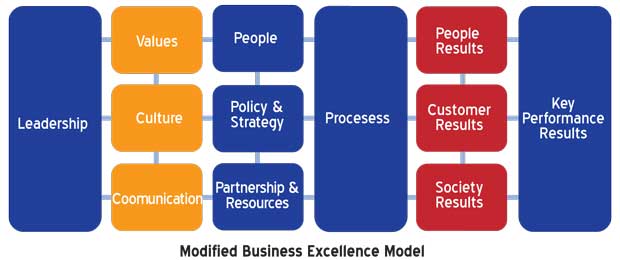24 Jun 2016 - {{hitsCtrl.values.hits}}


The plantations industry is a country within a country. Although the economies of scale in a plantation is much smaller compared to the size of operations in a country, a plantation has most of the features such as resident population, opportunities to receive free education, free health facilities, production of raw materials, factories to process, offices to undertake planning, managing and monitoring activities, transport systems, shops, safety measures, banking systems, distribution of postal services, electricity, telecommunication facilities and security alike.
Working on a plantation is different and unique. However, it is a pleasant experience in comparison to jobs in a non-plantation environment. If there are any entrepreneurs interested in land-based investments leading to profitable business outcomes, a plantation of Sri Lanka will undoubtedly be an ideal opportunity.
The infrastructure is well developed and supports to exploit the untapped potential on residential development, commercial development, export crop producing, growing of medicinal herbs, livestock raising, growing of valuable timber, mineral production, vegetable farms, vineyards, orchards, warehousing, processing plants and even recreational activities (outdoor adventure) leading to health and fitness. Nevertheless, these are only few opportunities to be named.
What is ‘land’?
Land is real estate or property, minus the buildings and equipment that do not occur naturally. Land ownership may offer the title holder the right to natural resources on the land. The traditional school of economics dictates that land is a factor of production, along with capital and labour therefore the term land can be looked at in a number of ways and its definition can be viewed differently depending on the nature of its analysis.
The basic concept of land is that it is a piece of earth, namely a piece of property that has an owner. Legally, the concept of land can be interpreted as a factor of some form of production and though it is not consumed during this process, production would not be possible without it. Land is, therefore, a resource with no cost of production. Despite the fact that the usage of land can be altered from less profitable to more profitable, supply cannot be increased.
Aspects/elements of land
The term land is inclusive of all physical elements bestowed by nature, to a specific area or piece of property. This includes environment, fields, forests, minerals, climate, animals and bodies or sources of water. In terms of being an asset, land includes anything that is on the ground, that is, trees, water and much more. Lenders are extremely attracted to land because it is one of the oldest forms of collateral and furthermore, it cannot be moved, stolen, wasted or destroyed. Air and space rights are also covered by the term, meaning all air and space above and below the property also constitute as part of the land.
Natural resources
There is a wealth of natural resources that may be present on a property or piece of land that the owner, or title holder, may be entitled to. This includes plants, human and animal life, soil, minerals, geographical location, electromagnetic features and geophysical occurrences.
Equipping change
Drawing a clue from the common knowledge on the importance of lighting a candle rather than blaming the darkness, Sri Lankan plantation owners must initiate immediate action towards land-based investments with the blessings of the government, the policymakers. In the event of an issue with conceptualization of the solution and managing connected problems with the massive transformational ‘change’ proposed under this article, both the Post Graduate Institute of Management and Institute of Personnel Management are willing to help regional plantation companies.
Moreover, they have expressed their willingness to help the industry anytime. The current Plantations Industries Ministry Secretary himself is an experienced resource person on models of business excellence (http://www.apo-tokyo.org/coe/coe_excellence.html). We are not short of knowledge for this gigantic transformation that will lead to smart plantations, which will undoubtedly be the first in the world as well. However, sadly the key decision-makers have a very poor attitude to equipping this change. The procrastination coupled with the desire for future comfort has restricted any positive development in this regard.
Planters have always proved their metal. They know how to bloom wherever they are planted. They are part of the human capital with extremely rare attributes. However, when some of them are promoted to higher level of jobs in the corporate sector, most of them fail to leave the ‘old baggage’ in the plantations. Instead they carry it to the new job hardly realizing that they have to do a different job of leading the team, whilst taking good care of the ‘growth’ of the company and the skills learnt thus far are not going to help them on their new job.
As Marshall Goldsmith writes, “What got you here won’t take you there.” Thereby, they do not perceive eminent threats; do not see the long-term goal and most surprisingly they are not concerned about the growth of their organisation. This is why a high-quality MBA could come in handy. A whole industry can be devastated with the poor thinking of one person at the main chair. Most of them do not hold the new role as a senior executive of a private sector organisation responsible for the outcomes of the national economy and development, so they fall back without opening themselves to obvious alternatives.
Management burnouts! Managing without strategy is a total waste of resources. The fundamental elements of business are customer expectations, employee morale, regulatory requirements, competitive pressures and economic changes and they are always in flux. Often businesses achieve a certain level of success and then stall. Strategic planning helps you avoid the stall and get off the plateau you find yourself on. Accidental success is dangerous.
That being stated, there is a great risk in managing large-scale business organisations without a strategic plan. It can negatively impact the attitude of the employees of an organisation. Employees who see aimlessness within an organisation have no sense of a greater purpose. People need a reason to come to work every day, besides a pay check. They need motivation and some positivity to generate their output. This is stemming from the quality of leadership and in this instance it is regional plantation companies (RPCs). These depressing conclusions such as uncertainty of employment, lack of direction, blame culture and much more are only seen as a threat to employment, which negatively impacts productivity. Isn’t this very similar to the current status of some of the plantations managed by the RPCs?
A combination of both life cycle assessment and business excellence models must be used in large-scale business organisations such as RPC-managed plantations in Sri Lanka. From the above figure the place occupied by the leadership in a business organisation is well articulated. Having said that we salute those CEOs of few RPCs for the excellent leadership they have provided and the matching complementary benefits they have reaped through motivated employees and winning strategies they have executed objectively.
The human resources of a plantation in addition to the executives, staff and workers of the plantations industry in Sri Lanka are multitalented. They can perform any job better than any other in the world while being quicker than the competitor. This is a core competency that the senior management and any investor could count on. Employees are going to be a scare resource anywhere in the world but not on plantations but creating an enabling environment is critical.
As discussed above, there are multiple opportunities to make highly profitable businesses on plantations. Why are we not looking at those opportunities? There is lack of coordination amongst the institutes responsible for different crop production here. The National Institute of Plantations Management must be commended for the initiatives launched in supporting plantation development in the recent past. At a meeting conducted by NIPM, it has been revealed that there is a possibility of achieving more than Rs.500,000 gross profit per hectare of cultivated land by 2020 if the correct strategies are executed in this direction. Mono cropping has failed the world over. The Plantations Industries Ministry is totally committed to assist the plantations industry but there is an issue of attitudes arising from the fear of failure amongst the RPCs, which is quite normal for any industry that is more than 150 years old. But we have to break this failing monotony and join with the rest of the world.
The time is opportune to look at the RPC-managed plantations sector, as the ideal place for land-based investments. The initial target should not be less than Rs.500,000 GP per hectare of land (in bearing) per annum at least by 2020. Different professionals should come into the sector according to their professional specialties that can match the actual need. Coordinated efforts using SMART options consuming clean energy and go green techniques will pave the way for the first in the world smart plantations.
Forgetting petty differences all of us at the Planters’ Association, Ceylon Planters’ Society, Plantations Industry Ministry and all other relevant professional bodies, stakeholders and ex-planters must contribute with their millions of years of experiences (when considered together) to make a US $ 10 billion industry by 2020. Considering the transformations that take place automatically beyond the borders of plantations here and globally, it is important to work on all the indicators of Human Development Indexes and requirements under the “global compact” of UNDP. Let this intervention act as an effective attraction and retention strategy.
The meaningful implementation of whatever we plan to deliver will be recognized heavily by the international community and thereby, as some are saying, there will be a method to the madness. For the execution of this plan however, we have to start thinking with the ‘end in mind’. Attraction and retention of new talents are of utmost importance for sustainable continuation of any profitable venture on plantations for now and for many more years to come.
Land-based investments are a self-sustainable concept that can get the cost leadership strategy combined with a real-time operations strategy, which can give the organisation the competitive advantage over its global competitors. Therefore, it can be concluded that the land-based investment framework in the plantations industries, in which the talent and infrastructure is hard to build in a hurry by competitors, is in fact the only viable, practical and most cost-effective alternative for turnaround management of RPCs in Sri Lanka.
(Lalin I. De Silva is former Editor Ceylon Planters’ Society Bulletin)
10 Jan 2025 46 minute ago
10 Jan 2025 2 hours ago
10 Jan 2025 3 hours ago
10 Jan 2025 5 hours ago
10 Jan 2025 5 hours ago